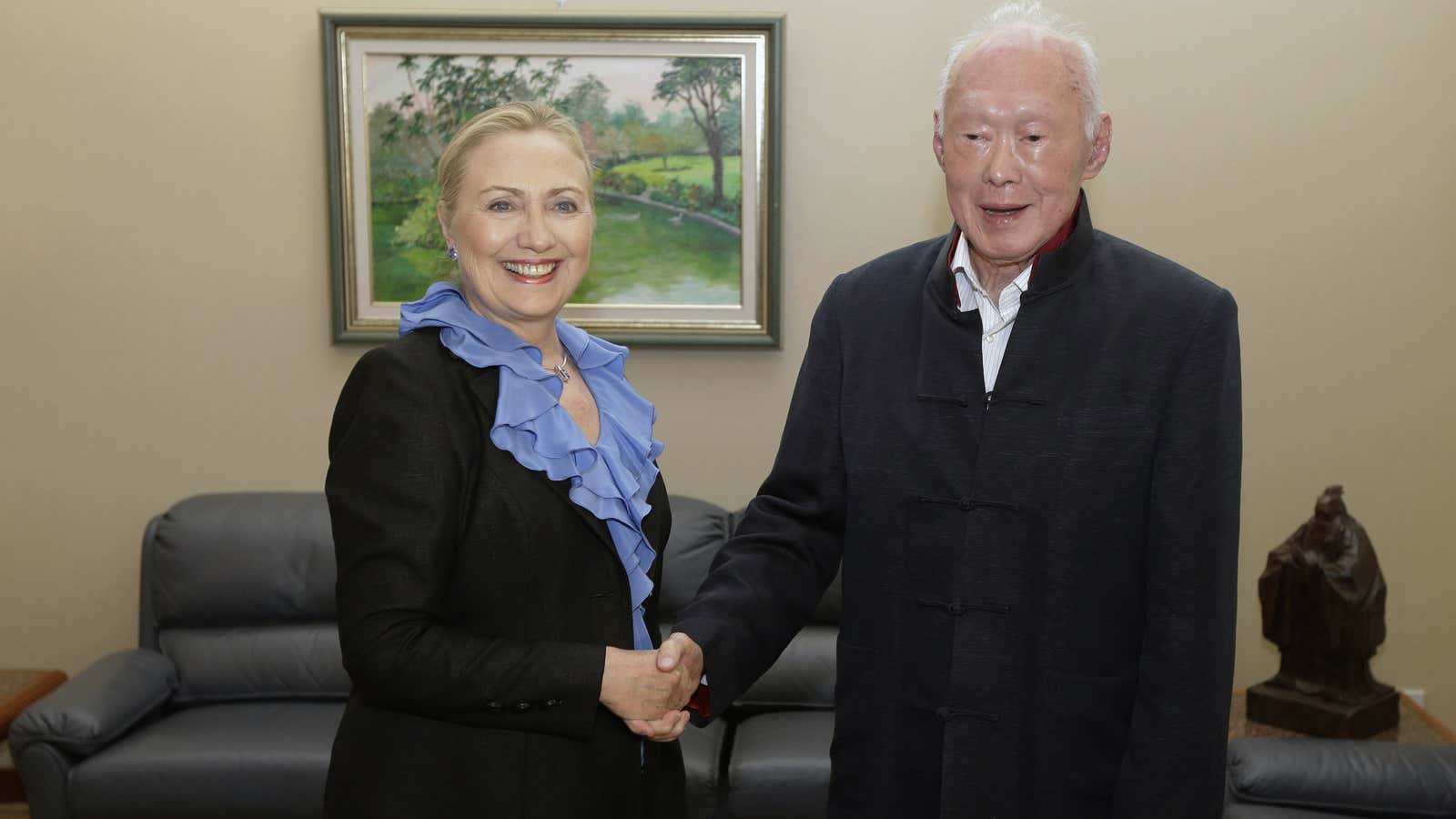One of Lee Kuan Yew’s accomplishments is Singapore, the shining city-state he built into a global economic powerhouse from scratch. But his other main legacy is the example he made to strongmen near and far, autocrats to whom he was an example that you could rule sternly but still create a vibrant economy with a thriving middle class.
Among the places most enamored with Lee was Central Asia, five states left reluctantly adrift from the Soviet Union in 1991. Historically accustomed to the rule of despots, the region at that time seemed immediately overrun by finger-wagging ambassadors and representatives of democratic states lecturing on the virtues of honest elections, courts, and bureaucrats. That intensified in Kazakhstan, Uzbekistan and the rest after a couple of rounds of rigged elections and jailed or beaten opponents.
Enter Lee and his enormously successful experiment in economics and security. ”There is a Singaporean model that offers an alternative to western democratic openness,” Alex Cooley, a Central Asia expert at Columbia University, told Quartz.
Kazakhstan president Nursultan Nazarbayev suggested that Singapore was a model on how a country should run, making it clear that he intended to follow Lee’s and not the West’s advice.
And so the 74-year-old Nazarbayev has done since, announcing a week ago in fact that he intends to run for president again in April; if he wins—a certainty short of incapacitation or death—Nazarbayev will have dominated his republic for three decades.
That will still be short of Lee’s own record—he dominated Singapore for six decades. In addition, Central Asia turned into a clutch of middling or failing countries wracked by family-centered corruption, suggesting that the region’s leaders were far more interested in the stern side of Lee than his fanatical organization and national purposefulness.
Not that Lee was influential only with autocrats: politicians from democratic states, too, flocked to him—the French, the British, Americans and others sought out Lee’s favor and his advice on questions including how to deal with China, Vietnam, terrorism, war, and economics. When they did not ask, Lee told them anyway in public statements and a respected 750-page autobiography.
In fact, while once scorned for his seemingly casual disregard for public political opinion, Lee gained global respect with age. In one way or another, it seemed that both dictators and democrats wanted to be like him.




